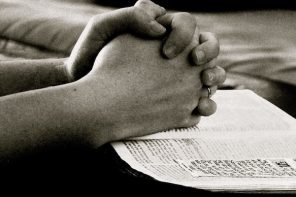The now deceased comedian George Carlin once commented, “I would never want to be a member of a group whose symbol was a man nailed to two pieces of wood.” That’s a pretty straightforward and bold statement, but I think it also expresses something that many in the world feel.
Perhaps so many feel that way because of the violence associated with the image. Crucifixion remains the most brutal form of execution ever devised by human kind; in our wildest dreams we couldn’t think of a bloodier and more painful form of death than what waited for the worst criminals during this period of history. Certainly we wouldn’t think of it now, when the very notion of a death sentence is called into question on moral grounds. In the end, though, the violence is more or less a surface level objection. It has to do with the actual act of crucifixion; the pain and suffering of the one undergoing it, regardless of the heinous crime they were convicted of.
I suspect, though, that the deeper reason why Carlin and others object to the cross is closer to the heart. It’s more of an emotional response than a pure regard of the violence. It’s because Christianity cuts the knees before it lifts the soul.
The cross is, among other things, an indictment and a reversal. It’s an indictment because if the Christian story of the death of Jesus is to be believed, then the physical crucifixion is only a shadow of the spiritual pain inflicted on Jesus. If the Bible is true, then Jesus bore not only the physical pain of the cross; He bore the weight of the very wrath of the very God of the universe. This is an indictment because if indeed there is wrath to be borne, then that wrath is present as a result of me. And of you. The cross is a picture not so much of the physical torment of the cross but of the true gravity of our sin.
Our knees are cut as we behold the man on the tree knowing that our sin is not merely a series of bad choices, but actions with eternal significance attached to them.
But the cross is not only an indictment; it’s also a reversal. Jesus calls out to His followers to follow Him – to take up their own cross as they do, giving up their own lives and follow Him not only as the One who saves but as the rightful king of the universe who lays claim to all creation. Our world cries out to live at all costs while the cross tells us to die.
Live and abort that child who might infringe on your hopes and dreams.
Live and leave that marriage to find someone who you think can make you happier.
Live and make sure that you take care of your own needs because no one else will.
Live at all costs.
This is what the cross reverses and says that the only way to truly live is to die. In both of these ways, through the indictment and reversal, we find that our knees are cut out from under us and we have no ground to stand on any more. We have no means of self-justification, no ability to discern what true life is, no pathway of our own making that isn’t riddled with our own sinful misunderstandings. We cannot stand… until we fall.
Carlin would never believe in a religion represented by this; neither would anyone else who is firmly convinced of their own autonomy, their own ability, and their own goodness. Nobody really comes to Jesus standing tall. But once we do come, indicted as the cosmic criminals we are and ready to embrace the great reversal – it’s then that we find the soul being lifted.
But not until then.
Subscribe to MichaelKelley.co
Never miss a new post. Subscribe to receive these posts in your inbox and to receive information about new discipleship resources.




